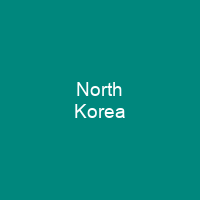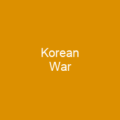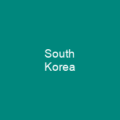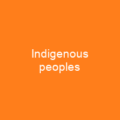North Korea: A Country of Contrasts
Imagine a country that has been shaped by centuries of history and divided by the cold war, yet still clings to its unique identity and culture. That’s North Korea, officially known as the Democratic People’s Republic of Korea (DPRK). Nestled in East Asia, it borders China, Russia, South Korea, and is surrounded by seas that hold both isolation and potential.
The Historical Divide
North Korea was first inhabited during the Lower Paleolithic period. However, its modern history began to unfold after World War II when Japan’s surrender led to the division of Korea into two zones: one occupied by the Soviet Union in the north and another by the United States in the south. This division eventually gave birth to two separate governments – the Democratic People’s Republic of Korea (DPRK) in the north, and the Republic of Korea (ROK) in the south.
The Korean War and Beyond
1950 saw the start of the Korean War when North Korea invaded South Korea. The war ended with an armistice agreement in 1953, but no formal peace treaty was ever signed. Post-war North Korea benefited from economic aid and expertise provided by other Eastern Bloc countries until the fall of the Soviet Union in 1991, which marked a sharp decline in its economy.
The Kim Dynasty
North Korea is led by the Workers’ Party of Korea (WPK), with Kim Jong Un at the helm. The country’s government is described as a totalitarian dictatorship with a comprehensive cult of personality around the Kim family, and its human rights record is considered one of the worst in the world.
Economic Challenges
North Korea’s economy has been heavily nationalized since the 1940s. It followed the Soviet pattern of five-year plans with the ultimate goal of achieving self-sufficiency, but systematic inefficiencies began to arise around 1960. The loss of Eastern Bloc trading partners and a series of natural disasters throughout the 1990s caused severe hardships, including widespread famine.
Reforms and Sanctions
In an attempt to recover from the collapse, North Korea began structural reforms in 1998 that formally legalized private ownership of assets and decentralized control over production. However, the country has faced significant challenges due to international sanctions under United Nations Security Council resolutions.
Military Might
The DPRK boasts one of the largest military institutions in the world with an estimated 1,280,000 active troops and 6,300,000 reserve personnel. The Korean People’s Army (KPA) is divided into five branches: Ground Force, Navy, Air and Anti-Air Force, Special Operations Force, and Rocket Force.
Nuclear Arsenal
North Korea has an estimated 40-116 assembled nuclear warheads and a large fleet of vessels, including submarines. The country’s military capabilities are uncertain due to ongoing tensions and secretive nature. Delivery capabilities are provided by the Rocket Force, which has some 1,000 ballistic missiles with a range of up to 11,900 km.
Human Rights
The human rights situation in North Korea is dire. Evidence of systematic, widespread, and gross human rights violations has been found by the UN inquiry into the DPRK’s human rights record. Restrictions on political and economic freedoms, employment, travel, association, expression, and movement are common.
Living Conditions
The country maintains one of the most closed and centralized economies in the world since the 1940s. Food and housing are extensively subsidized by the state; education and healthcare are free; and the payment of taxes was officially abolished in 1974.
Culture and Society
Despite a historically strong Chinese influence, Korean culture has shaped its own unique identity. The revolutionary struggle and the brilliance of the leadership are some of the main themes in art. ‘Reactionary’ elements from traditional culture have been discarded and cultural forms with a ‘folk’ spirit have been reintroduced.
Artistic Expression
Visual arts are generally produced in the aesthetic of socialist realism, combining Soviet and Japanese influences to instill a sentimental loyalty to the system. All artists in North Korea are required to join the Artists’ Union, and the best among them can receive an official license to portray the leaders.
Conclusion
North Korea is a complex country with a rich history and unique culture, but it faces significant challenges both internally and externally. Its economy, military might, and human rights record are all areas of concern for the international community. As the world continues to grapple with North Korea’s actions and policies, understanding its complexities remains crucial.

You want to know more about North Korea?
This page is based on the article North Korea published in Wikipedia (retrieved on March 6, 2025) and was automatically summarized using artificial intelligence.







